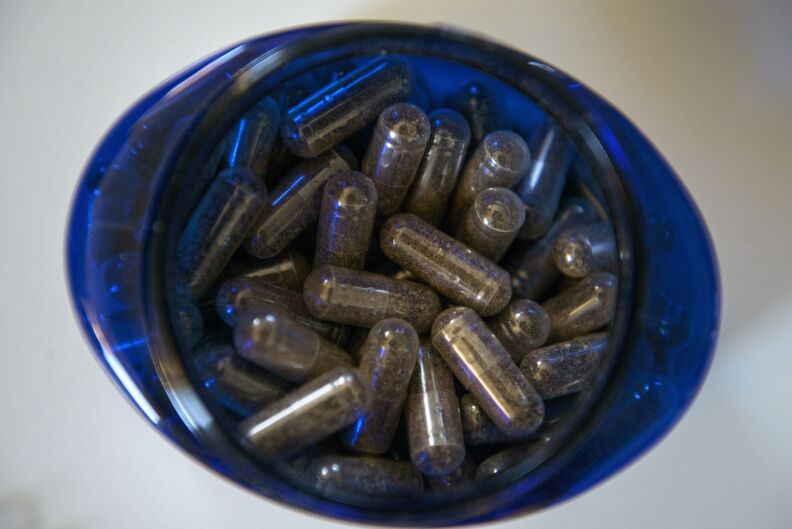Should You Eat Your Placenta? Plus Other Things You Should Know About This Fascinating Organ

The placenta is what develops in the uterus during pregnancy, connecting a growing fetus to the mother’s womb. It provides oxygen and nutrients to the baby all while removing toxins and waste. Unfortunately, experts say it’s poorly understood, and the research field is severely underappreciated.
Here are five things that might surprise you about the placenta.
Yes, it’s actually an organ
Many are shocked to find out it’s an organ, and arguably one of the most important ones. I mean, c’mon, it builds life. The baby’s development depends on it, plus it provides immune protections and produces critical hormones.
“It serves multiple functions and essentially works as multiple little organ systems,” said Dr. Margareta Pisarska, director of reproductive endocrinology and infertility and professor of obstetrics and gynecology at Cedars-Sinai Medical Center.
It has a lasting impact beyond pregnancy

It may be obvious that the placenta impacts both mother and fetus during pregnancy, but we now know it’s connected to their health post pregnancy and birth.
-
At magnitude 7.2, buildings collapsed
-
Now spinning in front of Santa Monica apartments
-
Advocates seek end to new LAUSD location policy
“These different patterns of injury in the placenta can dictate different ways in which the baby, once it’s born and grows up as an adult, is prone to different diseases later in adult life,” said Dr. Mana Parast, director of perinatal pathology at U.C. San Diego.
Parast says a baby that’s born early, for example, might be prone to obesity, diabetes or even cardiovascular disease later in life. Some placenta disorders, like preeclampsia (a serious blood pressure condition during pregnancy), may even provide insight into later health risks for mom. Plus, researchers are learning about the potential placental connection to things like auto immune disorders and even autism.
Stem cell research is critical
Human placenta is so different from animal models, Parast says. So using stem cells to model and research placentas is key. Studies are showing progress in experimenting on human placentas known as organoids or mini-placentas.
Eating your placenta? Maybe choose a different snack

Ingesting the placenta after birth is a long-running trend because the organ is so nutrient dense. According to Mayo Clinic, the most common way to do this is through capsules. Other methods include eating it raw or cooked.
While some research has shown benefits, you may not be getting the nutrients you think you are, plus the practice could even be harmful to you or your baby in some cases.
“The nutrients might not transfer to individuals because our intestines might break things down differently,” said Pisarska. “There are additional, natural ways to get those nutrients as well.”
Things you can do to increase chances of a healthy placenta
If you’re thinking about getting pregnant, start planning ahead at least three months out. This could include preconception counseling, taking prenatal vitamins and eating a healthy diet.
These things aren’t always planned, of course. Either way, it’s important to minimize negative exposures the best you can.
Learn more about the placenta
Drs. Pisarska and Parast joined AirTalk, LAist 89.3's daily news program, to discuss all things placenta. Take a deeper dive and listen to the full conversation below.
-
Charlotte Maya's memoir, "Sushi Tuesdays: A Memoir of Love, Loss, and Family Resilience" is an intimate looks at how she continues to navigate her husband's suicide.
-
Fentanyl and other drugs fuel record deaths among people experiencing homelessness in L.A. County. From 2019 to 2021, deaths jumped 70% to more than 2,200 in a single year.
-
Prosecutors say Stephan Gevorkian's patients include people with cancer. He faces five felony counts of practicing medicine without a certification.
-
April Valentine died at Centinela Hospital. Her daughter was born by emergency C-section. She'd gone into the pregnancy with a plan, knowing Black mothers like herself were at higher risk.
-
Before navigating domestic life in the United States, AAPI immigrants often navigated difficult lives in their motherlands, dealing with everything from poverty to war.
-
There are plenty of factors in life that contribute to happiness. But could keeping in touch with your loved ones be the most important?






